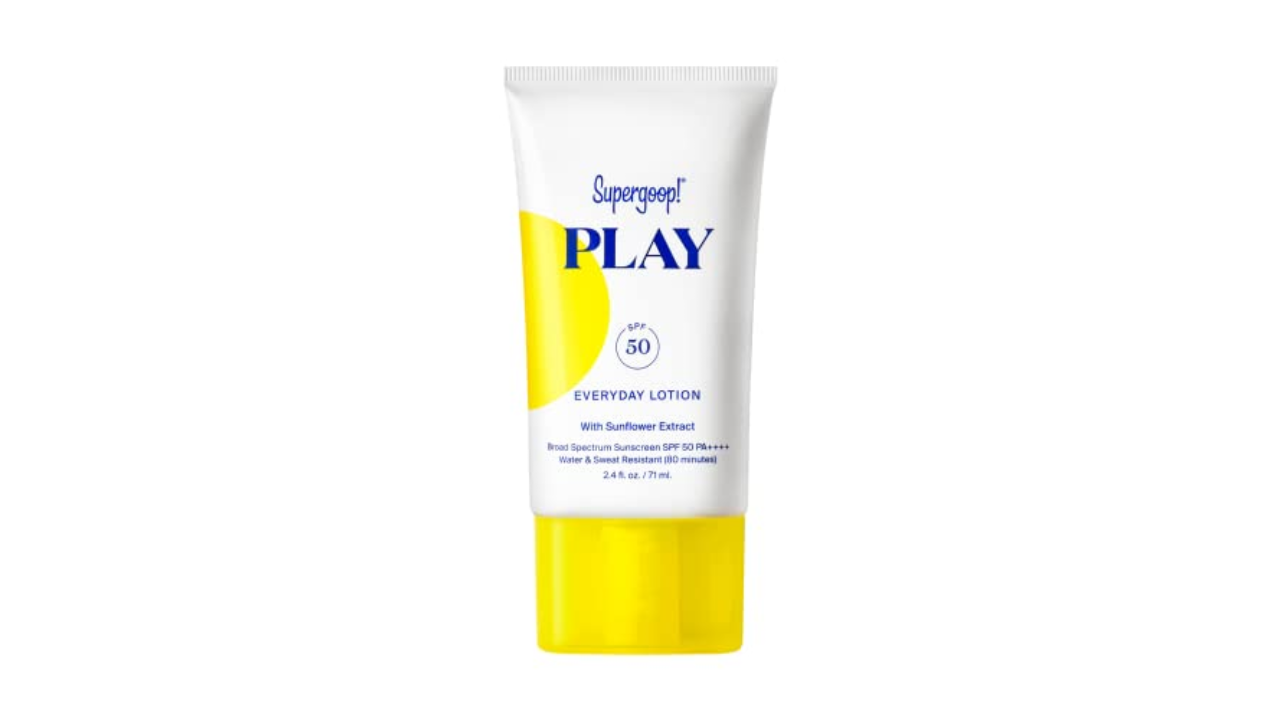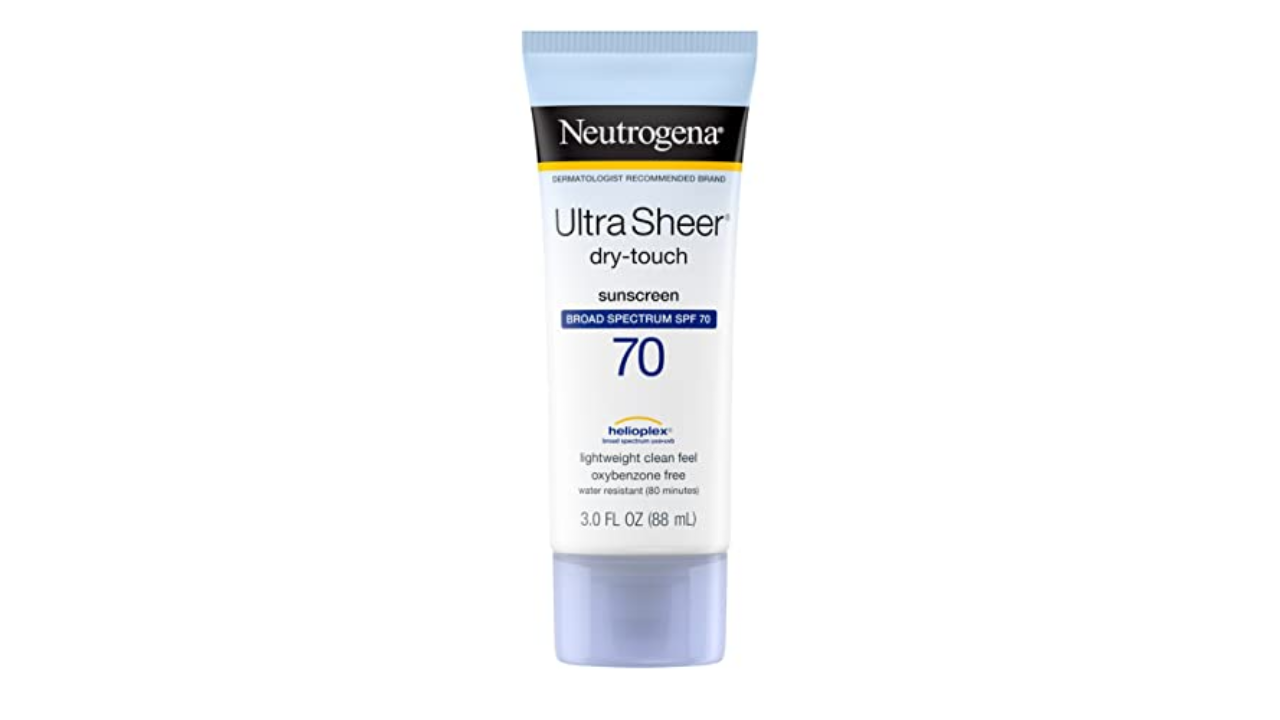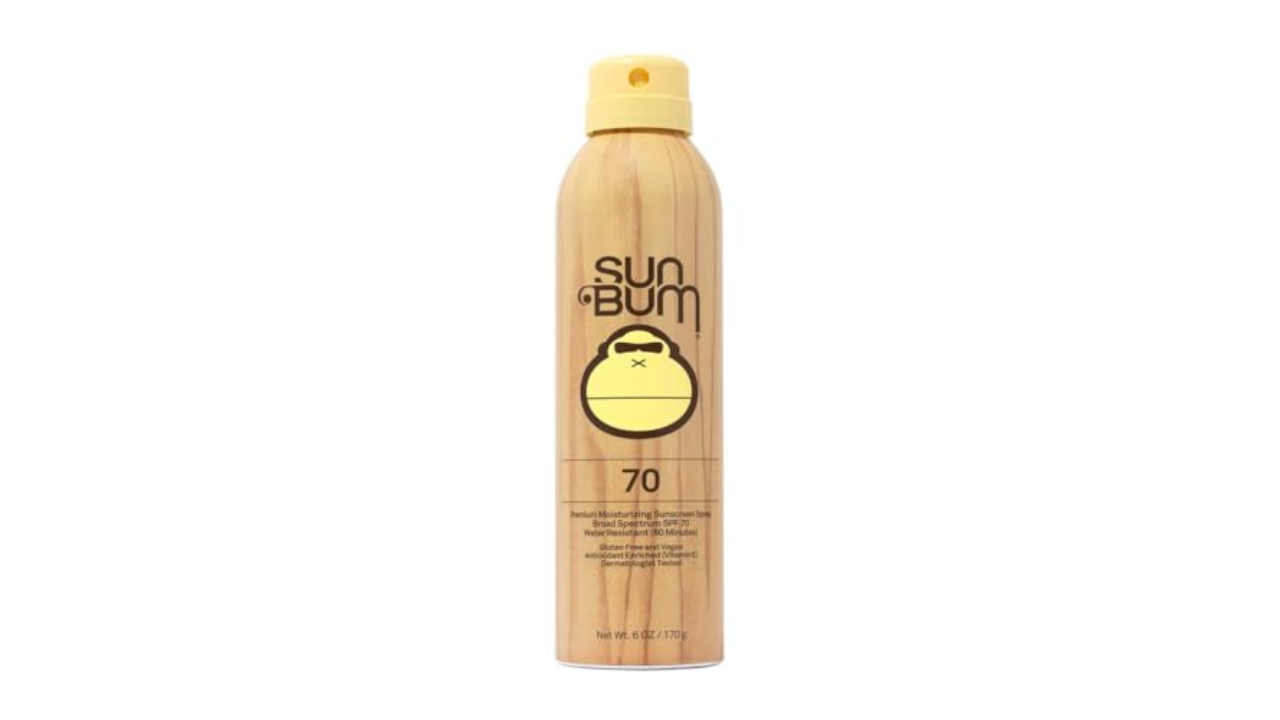We independently evaluate the products we review. When you buy via links on our site, we may receive compensation. Read more about how we vet products and deals.
The best body sunscreens of 2025 — recommended by celebrities, dermatologists and experts
Protect your skin from the sun -- yes, even in the winter -- with a full-body sunscreen.
According to the Centers for Disease Control and Prevention, skin cancer is now the most common cancer in the United States. The best way to prevent it? Regular use of the best body sunscreens, particularly high-quality products with broad-spectrum protection; those that block the damage caused by both UVA and UVB rays.
"The American Academy of Dermatology recommends reapplying sunscreen every two hours when outdoors, and more frequently if swimming or sweating," says Los Angeles facial plastic surgeon Dr. Kay Durairaj. "For mature skin, which may already show signs of photo-damage, diligent reapplication is not just beneficial, it's essential for maintaining skin health and vitality."
And, while many of us (especially those with sensitive skin) are acquainted with the best sunscreens for our faces, most of us don't know how or what to look for in a well-made body sunscreen. Read our frequently asked questions below for more on how to select the right sunscreen for you. And check out our picks below as recommended by dermatologists, celebrities and the Yahoo Shopping editors.
Best overall
Supergoop! Play Everyday SPF 50
Best for sensitive skin
EltaMD UV Active Zinc SPF 50+
Best reef safe
Thrive Bodyshield SPF 50
La Roche-Posay Anthelios Mineral Sunscreen SPF 50
Best drugstore
Neutrogena Ultra Sheer Dry-Touch SPF 70
Best for deep skin tones
Epicuren Discovery X-treme Cream Propolis Sunscreen SPF 45+
Best spray
Sun Bum Original SPF 70 Sunscreen Spray
Best for sun-damaged skin
Isdin Eryfotona Actinica Mineral Sunscreen SPF 50+
Update, Jan. 2, 2025: We checked all product prices and availability. Our number one pick for the best body sunscreen remains unchanged.
The best body sunscreens of 2025
Active Ingredients: Avobenzone (3%), Homosalate (10%), Octisalate (5%), Octocrylene (7.5%) | SPF: 50+ | Size: 2.45 ounces | Water-Resistant: Yes | Reef Safe: Yes | Cruelty-Free: Yes
This broad-spectrum sunscreen is sweat-resistant (for 80 minutes), lightning-fast absorbing and the gentle formula is great for all skin types (it's especially excellent for kids). It's designed to be used on both face and body, which makes it convenient and versatile — it's the only sunscreen I pack on vacation) — especially since it comes in a number of sizes, including both a tiny travel-size tube and a handy Supergoop Play Everyday jumbo size, an 18-ounce tub with an easy-to-use, family-friendly applicator pump.
For more info, check out my in-depth review of Supergoop.
- Lightweight
- Fast absorbing
- Broad-spectrum SPF 50 sunscreen (protects against both UVA and UVB rays)
- Family-friendly (gentle/works for many types of skin)
- Moisturizing
- No white cast
- Texture may be too greasy for some users
Active Ingredients: Zinc oxide | SPF: 50+ | Size: 3 ounces | Water-Resistant: Yes | Reef Safe: No | Cruelty-Free: No
Nearly every expert I spoke to raved about EltaMD's sunscreen line as safe and effective. This formula is both a mineral and chemical SPF, so the texture feels smooth going on and it is absorbed fast. It's also fragrance- and oil-free. The brand has legions of die-hard fans, including Brooke Shields, who, after a skin cancer scare, told Elle magazine: "I use sunscreen every day now. ... I'm a long-time user of the EltaMD sunscreen line. I always apply in the morning and one time during the day."
- Fast absorbing
- Noncomedogenic, fragrance- and oil-free
- Smooth texture
- Broad-spectrum coverage
- No white cast
- Pricey
Active Ingredients: Zinc oxide | SPF: 50 | Mineral or chemical: mineral | Size: 5.8 ounces | Water-Resistant: Yes | Reef Safe: Yes | Cruelty-Free: Yes
From an environmental standpoint, Thrive's sunscreen has a ton going for it: It's reef-safe, made of ingredients that support regenerative farming and contained in a tube that's comprised of 100% recycled plastic. What's inside is just as good, a potent zinc oxide mineral sunscreen that absorbs into skin easily with zero white cast (at least on my fair-ish skin). The scent is a kind of citrus-hippie, which I don't mind, but some users found a bit strong.
- Earth and reef friendly
- Natural ingredients
- Absorbs fast and easily
- No white cast
- Texture may be too greasy for some
Active Ingredients: Zinc oxide and titanium dioxide | SPF: 50 | Size: 3 ounces | Water-Resistant: Yes | Reef Safe: No | Cruelty-Free: No
The award-winning French La Roche-Posay Anthelios sunscreen is considered among the best in the world. The texture is lightweight, almost watery (like a thin day cream), which soaked into my skin on contact.
Once on, the formula looked natural, with no greasy feel, no stickiness and no glossy sheen.
You can read my in-depth review of La Roche-Posay Anthelios sunscreen here.
- Lightweight
- Fragrance free
- Gentle
- Broad-spectrum mineral protection
- Packaged in a small tube, not great for longer trips
Active Ingredients: Homosalate, Octocrylene | SPF: 50 | Size: 3 ounces | Water-Resistant: Yes | Reef Safe: No | Cruelty-Free: No
Neutrogena's lightweight, sheer, high-coverage chemical SPF is dermatologist-recommended, affordable, reliable and beloved by not only normies like us, but celebs like Nicole Kidman, who told Allure in 2019: "I’m shooting outdoors a lot, so the most important thing is the sunscreen — I use Neutrogena. ... I reapply every 90 minutes, every single day.”
- Absorbs quickly
- Affordable
- No white cast
- Potent coverage
- Dermatologist recommended
- Not reef safe
- Not cruelty-free
Active Ingredients: Zinc oxide | SPF: 45+ | Size: 2.5 ounces | Water-Resistant: Yes | Reef Safe: Yes | Cruelty-Free: Yes
A luxurious, extra-silky mineral sunscreen cream that combines zinc oxide with bee propolis and vitamin C to nourish your skin, Epicuren's formula is also a favorite of actress Tracee Ellis Ross: “It looks natural. Some sunscreens are not great if you’re a person of color,” she explained to Harper’s Bazaar in 2017.
- Blends seamlessly into deep skin shades
- Natural formula
- Broad spectrum coverage
- Lightweight
- Skin nourishing
- Expensive
Active Ingredients: Avobenzone 3%, Homosalate 15%, Octisalate 5%, Octocrylene 7% | SPF: 70 | Size: 2.5 ounces | Water-Resistant: Yes | Reef Safe: No | Cruelty-Free: Yes
I first tried Sun Bum's SPF 70 sunscreen spray after picking it up in a grocery store while on vacation, which is one of Sun Bum's biggest pros — it's widely available. The spray protected me from any hint of sunburn for a full seven days, even after several hours in the pool.
The texture is silky and not at all sticky. The spray nozzle releases a fine mist that covers large swaths of the body with minimal effort — truly the best kind of sunscreen application. It worked so well, in fact, that I was able to cover my back without the aid of another adult.
The spray smells like coconut-banana, but not in a way that was overpowering or unpleasant for me. Still, the scent is some reviewers' major complaint about Sun Bum (I just thought it smelled like sunscreen).
Read my full Sun Bum review here.
- Strong, even protection
- Nongreasy
- Fast-absorbing
- SPF 70
- Affordable
- Some may find the scent overpowering
- Reef-friendly but not reef-safe
SPF: 50 | Broad spectrum: Yes | Water resistance: Yes (but limited) | Mineral or chemical: Mineral | Active ingredients: Actinica Zinc Oxide Reef Safe: Yes | Cruelty-Free: Yes
The name may be a mouthful, but dermatologists swear by this one. Doctors we spoke to particularly recommend it for patients who have known sun damage. Isdin’s Eryfotona Actinica is one of the best mineral sunscreens, is lightweight, won’t leave your skin feeling greasy and has UVA/UVB protection. It's also formulated with skin-healing ingredients like vitamin E to help fight UVA-induced skin damage.
- Good for sensitive skin
- Contains skin-repairing nutritients
- Broad spectrum SPF
- Fast absorbing
- Lightweight
- Scent-free
- Expensive
- Water-resistant for only 40 minutes
FAQs
What's the difference between face sunscreen and body sunscreen?
It's easy to think you can just use any sunscreen, anywhere, but there's a reason to invest in different iterations for different anatomy — beyond just Big Sunscreen trying to rip you off. The skin on our faces tends to be thinner and more easily irritated and sunburned than the skin on our bodies, which means facial sunscreens are designed to be stronger, more hypoallergenic and less greasy (to avoid both acne flare-ups and burning your eyes) than those made for your arms, back and legs. Because face sunscreens are formulated more like skin care (often with high-end skin care ingredients), they tend to be more expensive. They're also packaged in smaller quantities, often not ample for repeatedly covering larger swaths of skin.
"When choosing a good sunscreen for body, it's usually easier [than for face]: you can select from more options," explains cosmetic dermatologist Dr. Ava Shamban. "Oil-based, spray, mist, light body lotion or heavier cream formulations can most often be applied without issue for normal skin." Though she cautions: "Those with super sensitive or reactive skin do need to select those that will not irritate or exacerbate skin conditions."
Other considerations when choosing a new body SPF: deciding between mineral or chemical sunscreens (the main difference: chemical sunscreens absorb into the skin and act as a kind of sponge for harmful rays, while mineral sunscreens use literal minerals like titanium dioxide and zinc oxide to create a physical shield that protects skin from UV light, which is why they're sometimes referred to as physical sunscreens).
You should also select a product with a SPF 30 or higher, one that you enjoy (or at least don't mind) applying, with a scent and texture that's pleasant to you. Remember, the most important aspect of sunscreen shopping is finding one you'll actually use.
Can I use body sunscreen on my face?
Experts I spoke with gave a resounding "yes!" to this question but only if there are no alternative face sunscreens around (the idea being that any sunscreen is better than no sunscreen). Sun protection for your face is usually more lightweight, contains antioxidants and anti-aging ingredients like hyaluronic acid and is usually better for the more tender facial dermis (these products also often contain complexion-smoothing qualities, as in the case of the best tinted sunscreens). There are exceptions of course — some quality sunburn preventers, like Supergoop's Play, are formulated to work on both face and body.
Does sunscreen expire?
In the United States, the Food and Drug Administration mandates that any sunscreen remain effective for at least 36 months; after that the strength of your sunscreen may diminish and deteriorate. Many sunscreens have expiration dates and should be discarded immediately after the date marked. According the Mayo Clinic, you should also toss any product in which "the color or texture changes significantly."
Meet our experts
Los Angeles facial plastic surgeon Dr. Kay Durairaj
Board-certified cosmetic dermatologist Dr. Ava Shamban













